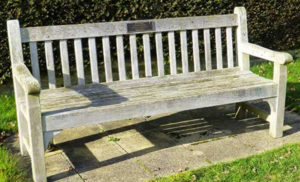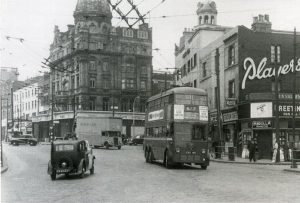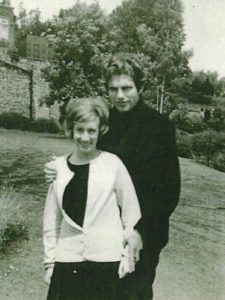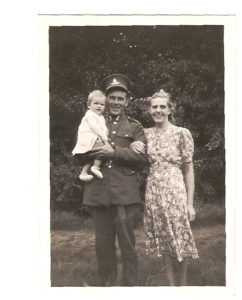Memory is a tricky sort of chap. My recollections before the age of seven are a series of disordered snapshots whereas from seven onwards the sequences and situations become more familiar and easier to recall. But I guess my memories of late 1945/early 1946 are more deeply etched into my consciousness because there had been such a significant shift of my daily routine. In just a short window of time at the end of WW2 not only did my unremembered dad come home after five years of serving King and country but I also entered the world of formal education at a small London County Council church primary school at the top of Brixton Hill.
That day in 1946 we gathered with our mums (dads didn’t do schools in those days) on the pavement outside the school entrance. A teacher came into the playground and blew a whistle. Some of us left mum and went into the playground. (My mum told me years later she was hurt because I didn’t look back!!)
Others came in only when their mums pushed them in. One pudding of a boy came in crying his eyes out. In later years Pudding Boy used his size and weight to bully other kids – so when he did that to the young brother of a friend of mine I reminded him in a very loud voice how he cried on that first day. He steered clear of me after that. I think it was an early lesson proving to me that sometimes interpersonal skills were more effective than a kick on the shin…
The teacher, a rather stern looking lady called Miss B marshalled us into a line then blew the whistle again. The final few kids were prodded into the playground. Like Pudding Boy a few were tearful but Miss B just pushed them into the line then marched us into the school, ignoring the waving mums.
When we got into the classroom we were shown a long row of hooks, each one marked with a coloured shape….red triangle, blue circle etc etc. These, we were informed, were our coat hooks and we were each allocated a hook and told it was our job to remember our shape and Miss B didn’t expect a bunch of five year olds to forget because we were now in school and old enough to be sensible.
Miss B wore a long floral smock that went down to her ankles. I guess she must have started teaching in the early 1900s because she eventually retired in 1950. She certainly was old school. Reading, writing, spelling, sums and mental arithmetic in the morning and, if we worked hard, arty crafty stuff in the afternoon.
She ruled us with a gimlet eye and, when necessary, a sharp look of disapproval which would quell any rebellious soul. My working class mum had taught me to read and write so I managed to bumble along quite well but many of my thirty nine fellow pupils were thrown into the deep end. Yet nobody left Miss B’s class unable to read or write.
When we did art we painted on newspapres or sheets torn out of old telephone directories because there was a national shortage of paper – which is why we had to fill every space in our copy books if we wanted to avoid Miss B’s ire. Wasting paper in those days of genuine austerity was one of the seven deadly sins of education. Even in our loo at home there was rarely any toilet paper, just small squares of newspaper stuck onto a nail in the wall. (I remember once dad forgot I was in the room and said to my mum “we must have the blackest bums in Britain, Marje….”)
I often wonder how Miss B would fare in our more “caring” and wasteful culture….
Just a few months later she moved to take over the post reception class and we got a new teacher, Miss T, very much younger but not so well organised or experienced. We did a lot of painting and singing but not so many sums or spellings and there was a lot of running around. One of the other mums told mine that her son had forgotten how to read. Another said our new teacher was a “progressive” and Miss B was complaining that when children came up to her class they had forgotten a lot of basic skills and she had to spend quite a lot of time building them back. Clearly then in my infant mind I assumed that “progressive” was a bit of a dirty word..
When I moved up to Miss B it was back to basics with a vengeance. Regrettably my first two years at school were continuously interrupted not just by power cuts and the savage winter of 1947 but also with bouts of sinus problems and it was only when I moved up to Class Three in 1948 that my attendance improved.
Fortunately my new teacher was neither poorly organised like Miss T or scary like Miss B and I discovered that a classroom could be well controlled but also a lot of fun. Our class 3 teacher was Miss S and all of us, boys and girls, thought she was the best thing since sliced bread (or would have done if sliced bread had been available then..)




